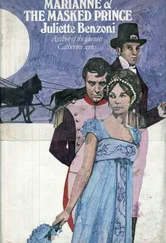Berta answered Rudolf’s question for the umpteenth time.
“What was Grandpa again?”
“A gravedigger. An infantryman. A gravedigger. When he was an infantryman, he deserted,” Berta chuckled. “He hid out in the hayloft of a farmer named Zweifel in Gnom. Until the war was over. Zweifel’s daughter smuggled him bread and speck. The farmer could never know about it. And he never did find out.” Berta chuckled again. “Yes, yes. Old farmer Zweifel was a distinguished gentleman in those days.”
“That’s not what I mean! In October! What happened with Grandpa in October?” Rudolf asked. It was only this one story, the story about October, that managed to hold his attention and calm him down somewhat.
“Of course. It was in the newspaper. Someone found a body. In the Mueller-Rickenberg forest, in the vicinity of Gnom near St. Neiz am Grünbach. Under a mound of earth, neatly covered with spruce branches. A grave. Shot in the head. Buried three to four weeks before. The corpse was gagged and its hands were bound behind its back.”
“And the corpse was the gravedigger?”
Berta shrugged. “He went into the forest, and he never came back out.”
“But how do you know that that was Grandpa’s body?” Rudolf insisted.
“Well, you know, they notified me.”
“Why didn’t you go looking for Grandpa? Maybe that unidentified corpse wasn’t actually him?”
Berta said: “That’s just how it happened.”
“Did Grandma see the corpse? What did Uncle Wastl think, and Uncle Karl and Uncle Richard? Did they really all think the same thing, that the corpse was definitely the gravedigger’s?”
“It happened in October!” Little Berta said, shoving her brother with her elbow. “Are you stupid? They were all dead by then.”
“Aha,” said Rudolf at length, and then once again, “Aha.”
“Why was my grandpa a gravedigger?” Little Berta asked, and Berta shrugged:
“He just was. He got his job back without any difficulty as soon as the war was done. He had no reason to disappear. The war was already well over.”
Rudolf patted his sister several times on the back and said, “Nothing can kill the gravedigger — he always keeps his word. When he says he’s coming home from the war, then he’ll come. And you know why?”
His sister, bored, answered, “Of course!”
“Then say it! Say it, if you know why!”
Little Berta, insulted, remained silent. Berta answered in her stead: “‘Because I’m a gravedigger. And we must have gravediggers if order is to be kept. That means I have no choice but to survive. It may be I’m the last one who still knows this craft! What happens to a craft when none of its masters return from the front?’”
Berta chuckled and said, “He was just a devoted gravedigger. He just knew what his work meant to people. He loved what he did.”
Berta’s gaze fell on Rudolf’s profile, and her thoughts turned vaguely to her father, the gravedigger, who had been an infantryman for a time, and she said, “Yes. Yes. You really were a good gravedigger.”
Rudolf’s eyes closed, but he went on speaking: “Maybe a gravedigger is something I can be, too,” and Berta thought how very close she and her children had become over those past three days. She didn’t know exactly why, but somehow it seemed right to stay up through the rest of the night. Either to avoid the nightmares, or to sift through her own life and the lives of her children.
Maybe it was all of those things, maybe none of them.
PRECISE, CLEAR, WELL-ROUNDED LETTERS
Berta Schrei had given birth to a boy in the year 1945 and to a girl in the year 1950 and in the year 1958, before the beginning of the leafless season, she saw fit to impart a certain piece of information to Wilhelm, a thing it seemed essential to impart, precisely and without distortions, in very legible letters: precise, clear, and well-rounded. She had always gotten A s in handwriting. Her last report card attested to the fact: a certain Berta Faust, resident of building 13, apartment 12 in Allerseelengasse, Donaublau, had graduated with a cumulative grade of A.
Solely for reasons of thrift, Berta conveyed her disclosure in the same blue envelope that had come from the school, an envelope that served to hide — with extraordinary tact — the substance of the letter inside it, just as when the teacher, from pure sympathy and the warmest sense of compassion, had taken pains — again, with great tact — to soften the substance of the school’s decision with regards to Little Bertha, a decision that now loomed all the more ominously before Berta’s eyes, implying that her daughter, who had always learned everything so easily, might be an even worse student than Rudolf. “So much compassion,” as Berta knew already on her way home, “means that her case is hopeless.”
And on that long night, Berta Schrei came to a decision: “Two hopeless cases are a doubly heavy burden.”
AS SHADOWY AND GHOSTLY AS THE WAR YEARS
Wilhelm, still in his chauffeur’s uniform, had imagined that on returning from Felsenstein, at around eleven in the morning, he would be able to march in triumphantly, right before Berta’s eyes, and announce, “What do you say, Berta? Two days earlier than expected! Can you believe it?”
He crept in like a thief, laid his ear against the kitchen door’s keyhole, giggled to himself, rubbed his hands together cheerfully, then threw the door wide open: “Berta, it’s me!” he shouted, his arms stretched outward.
Then he dropped into the chair disappointed, took off his chauffeur’s cap, thought to himself that his Berta must be out shopping, and cheered up once more as he imagined the look on her face when she came back home and found him sitting there in the kitchen, a sight as perfectly natural as it would be utterly unexpected. He laughed, pleased with both himself and the circumstances, and just then, his eyes fell on the blue envelope on the table.
“I have brought my cursed creations to an end. Your Berta, who loves you.”
He read and smiled, read again and smiled again. At first he didn’t understand, nor would he manage to understand later, when every trace of Berta Schrei had been struck from his life, and his children were lying in the ground.
It wasn’t until the second year following these events that the notion gradually dawned on him that the Earth’s shadow wasn’t simply passing him by, like a dream; that the Earth was a place he could make his home. He arrived somehow at the sense that he was a fully fledged resident of the Earth, and beyond that, the son of a nation, and not just of any nation, but the Isle of the Blessed.
It was with the aid of this feeling, as vague as it was pervasive, that he managed eventually to accept that, at a given moment in his life, a person existed who was capable of anesthetizing her children with sleeping pills and strangling them with her bare hands, only to fall on a butcher knife afterward with all her weight. It came to light that what she’d supposed to lie behind her left breast was instead concealed behind her right: a medical rarity. This circumstance assisted the doctors, who did still want to do their best to save this person’s life.
And in fact Wilhelm could just manage to accept it, so long as he allowed the events before the leafless season in 1958 to remain for him as shadowy and ghostly as the war years.
Much later, when he heard Wilhelmine’s decisive proviso to the proposal he’d never actually made—“If you want to marry me, then it must be on January 13th”—he understood, then, it was time to ask for Wilhelmine’s hand.
Somehow, it was Wilhelmine’s insistence on that date that restored to him the reality of that person , aforementioned, and she recovered her proper name, Berta.
Читать дальше











